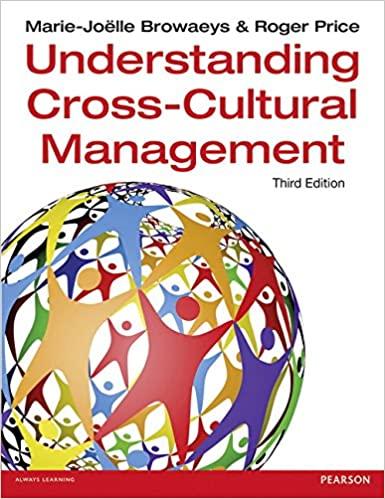Question
Brief United States v. Hill [11 points]. Brief United States v. Williams [11 points]. 1. The original purpose of the Fourth Amendment was to forbid
- Brief United States v. Hill [11 points].
- Brief United States v. Williams [11 points].
1. The original purpose of the Fourth Amendment was to forbid the use of general warrants. General warrants typically did not name the place to be searched or the property to be seized, and as a result permitted a general rummaging through a suspect's property. The particularity requirement was designed to prevent such general rummaging. By limiting searches to a particular place for particular evidence, the requirement limits the government's powers to conduct dragnet searches. Does the particularity requirement continue to serve this function in a world of digital evidence? Or do traditional Fourth Amendment rules makecomputer warrants that are particularized in theory general warrants in practice? Consider the fact that the computer forensics process can be extremely invasive. Forensic analysts looking for evidence described in a warrant sometimes open every file and view every image. As a result, almost everything on the computer can come into plain view. Under Williams, any evidence outside the warrant that comes into plain view can potentially be seized under the plain view exception. Are there any limits at all to how agents can search a computer and whether they can use evidence outside the scope of the warrant that they discover? [6 points].
Can courts rule out parts of an electronic storage device where evidence categorically will not be found? In Herrera v. State, 357 P.3d 1227 (Colo. 2015), agents obtained a warrant to search the seized cell phone of a suspect who had contacted young girls to set up sexual encounters with them. The police obtained a narrow warrant that authorized the seizure of records identifying the phone as Herrera's as well as the seizure of communications between Herrera and an undercover police officer who had communicated with the defendant posing as a girl named "Stazi." In the course of searching the phone pursuant to the warrant, the detective came across a folder in the phone's instant messaging app that appeared to contain messages between Herrera and another known victim. The known victim was named "Faith W." her full last name was excluded from the opinion because she was a minor and the folder was labeled "Faith Fallout." The detective opened the folder to read the communications. After reading the communications, he copied them for use at trial. The Colorado Supreme Court ruled that the officer had violated the Fourth Amendment by opening the "Faith Fallout" folder: In executing a search warrant, police officers may search areas in which the items identified in the warrant might reasonably be found, including closed containers. We analogize the "Faith Fallout" text message folder to a closed container, which Detective Slattery opened to discover its contents namely, the text messages between Faith W. and Herrera. Here, the warrant authorized Detective Slattery to search for messages between "Stazi" and Herrera. The question, then, is whether the "Faith Fallout folder was a container in which messages from "Stazi" could reasonably be found. We agree with the trial court that it was not. Because the evidence objectively indicated that the "Faith Fallout' folder contained messages from Faith W. and only Faith W., the police had no objective basis to conclude that the folder would contain messages from "Stazi." Id. at 1232-33. Is the court's analysis persuasive? On one hand, courts have widely held that agents cannot open a closed container if it could not fit the evidence described in the warrant. On the other hand, it seems that Herrera changed the question: Instead of asking whether the evidence described in the warrant could he in the be in the folder. If the Fourth me believe who is that the bridence would arch folders if there is no reason to believe that the tole police cannot near can a criminal simply place evidence in folders unliker. contains vience? Or is a cell phone special, as an instant messaging app wit particular name on the folder will almost always only contain messages with that particular user? [6 points].
Step by Step Solution
There are 3 Steps involved in it
Step: 1

Get Instant Access with AI-Powered Solutions
See step-by-step solutions with expert insights and AI powered tools for academic success
Step: 2

Step: 3

Ace Your Homework with AI
Get the answers you need in no time with our AI-driven, step-by-step assistance
Get Started


